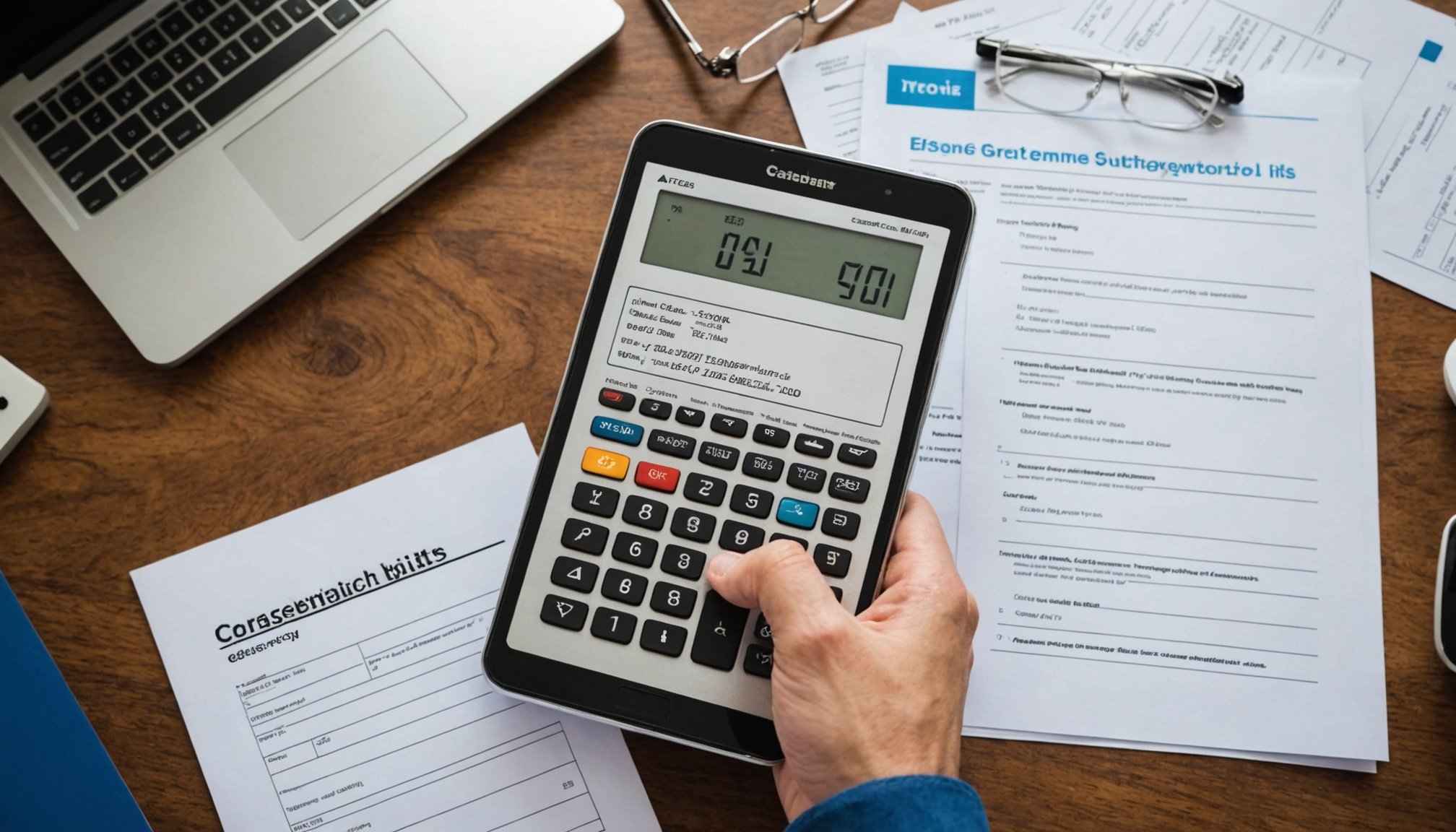Erroneous utility bills can cause frustration and financial strain for UK consumers. Miscalculations can lead to overpayments, creating unnecessary burdens. This guide empowers you to identify mistakes and challenge incorrect charges effectively. From understanding your rights to navigating the complaint process, you'll gain practical insights and actionable strategies. Take control of your utility billing and reclaim what's rightfully yours. Your savings start here.
Understanding Utility Bills in the UK
Navigating utility bills in the UK can be daunting, but understanding their components is essential. Typically, a utility bill includes charges for electricity, gas, and water usage, along with standing charges that cover maintenance and service provision. These charges can vary based on consumption and the supplier's tariffs.
Lire également : Navigating the New UK Electric Vehicle Charging Station Regulations: A Comprehensive Compliance Guide
Consumer rights play a significant role in how utility bills are managed. In the UK, consumers have the right to accurate billing, clear explanations of charges, and the ability to dispute any discrepancies. If a consumer believes their bill is incorrect, they can request a review from their supplier. Additionally, consumers are entitled to switch suppliers if they find a better deal, promoting competition and potentially lowering costs.
UK utility regulations ensure that companies operate fairly and transparently. The Office of Gas and Electricity Markets (Ofgem) oversees these companies, enforcing rules to protect consumers. Ofgem's regulations require suppliers to provide clear billing information and maintain fair pricing structures. These regulations are designed to prevent overcharging and ensure that consumers receive reliable services.
A lire aussi : Navigating the Path to UK Citizenship: Your 2023 Guide to Naturalization Application
By understanding these components and rights, consumers can better manage their utility expenses and make informed decisions about their energy providers.
Identifying Erroneous Utility Charges
Navigating your utility bill can be tricky, especially when it comes to spotting erroneous charges. Common billing errors often include incorrect meter readings, misapplied tariffs, or charges for services not received. These discrepancies can lead to unexpectedly high bills, causing unnecessary stress.
To identify utility bill discrepancies, start by comparing your current bill with previous ones. Look for sudden spikes in usage or charges that don't align with your consumption habits. Verify the meter readings on your bill against the actual readings on your meters. If there's a mismatch, contact your supplier for clarification.
Regularly reviewing your bills is crucial. It allows you to quickly spot common billing errors and address them promptly. This proactive approach not only helps you avoid overpaying but also ensures that you are charged accurately for your usage.
If you find any discrepancies, reach out to your supplier's customer service. They are obliged to investigate and rectify any mistakes. Being vigilant about your bills empowers you to manage your finances more effectively and ensures you only pay for what you actually use.
The 2023 Process for Challenging Utility Bills
Navigating the dispute process for contesting utility bills can be straightforward if approached methodically. Here's a consumer guide to help you through it.
Step-by-Step Process for Disputing Incorrect Charges
-
Review Your Bill Thoroughly: Identify specific charges you believe are incorrect. Keep a record of any discrepancies noted.
-
Contact Your Supplier: Reach out to the customer service department to express your concerns. Clearly state the charges you're contesting and provide any initial evidence you have gathered.
-
Submit a Formal Complaint: If the issue isn't resolved, submit a written complaint to your supplier. This starts the formal dispute process.
Key Timelines and Deadlines
- Initial Contact: Reach out to your supplier as soon as you notice the error.
- Response Time: Suppliers typically have 8 weeks to resolve your complaint.
- Escalation: If unresolved, escalate to the Energy Ombudsman after the 8-week period.
Necessary Documentation
- Previous Bills: For comparison and evidence of discrepancies.
- Meter Readings: Photographic evidence of current readings.
- Correspondence Records: Keep copies of all communications with your supplier.
By following these steps, you can effectively navigate the process of contesting utility bills.
Documenting Your Case
Proper documentation is crucial when disputing utility bills. Effective evidence collection can significantly strengthen your case, ensuring you have the necessary supporting documents to validate your claims.
Types of Documentation Needed
When building your case, gather the following:
- Previous Bills: Use these for comparison to highlight discrepancies.
- Meter Readings: Capture photographic evidence of current readings.
- Correspondence Records: Keep copies of all communications with your supplier, including emails and letters.
- Receipts: If applicable, provide receipts for any payments made.
Tips for Organizing and Presenting Your Evidence
Organize your documents systematically to present a clear and concise argument. Use chronological order to show the timeline of events. Highlight key details in your supporting documents that directly relate to the disputed charges. When communicating with your supplier, reference specific documents to bolster your claims.
How to Maintain Records for Future Reference
Maintain a dedicated folder, either physical or digital, for all utility-related documents. Regularly update this folder, ensuring that all supporting documents are easily accessible. Keeping an organized record helps in future disputes and provides a comprehensive history of your utility usage and interactions with suppliers.
Contacting Your Utility Provider
Effectively communicating with your utility provider is crucial when addressing billing issues. Begin by contacting their customer service department, typically available via phone or email. Clearly articulate your concerns, referencing specific charges and providing any supporting documentation you have gathered. This initial contact often resolves many issues, but if not, understanding the escalation process is vital.
The Escalation Process for Unresolved Disputes
Should your initial attempts not yield a satisfactory resolution, escalate the issue. Start by requesting to speak with a supervisor or manager within the customer service team. If the problem persists, you may need to formally escalate the matter. This involves submitting a written complaint, ensuring you outline the dispute clearly and attach all relevant evidence.
Key Contact Information for Major UK Utility Providers
Having the correct contact information is essential. Most major UK utility providers have dedicated helplines and email addresses for billing inquiries. Check your bill or the provider's website for these details. Keep a record of all communications, noting the date, time, and names of any representatives you speak with. This documentation is crucial if you need to proceed to further escalation stages.
Utilizing Regulatory Bodies and Consumer Advocacy Groups
Understanding the role of regulatory bodies and consumer advocacy groups is crucial when dealing with utility disputes. These entities provide essential support and guidance to consumers facing billing issues.
Role of Regulatory Bodies in Utility Disputes
Regulatory bodies, such as Ofgem in the UK, oversee utility companies to ensure they operate fairly and transparently. They enforce regulations that protect consumers from unfair charges and practices. If a dispute with your utility provider remains unresolved, these bodies can offer guidance on the next steps and ensure compliance with industry standards.
Overview of Ombudsman Services Available to Consumers
Ombudsman services serve as an impartial third party to help resolve disputes between consumers and utility companies. After following the supplier's complaint process, if you're still unsatisfied, the Energy Ombudsman can investigate your case at no cost. They have the authority to recommend solutions, ensuring a fair outcome for both parties.
How Consumer Advocacy Groups Can Assist in the Dispute Process
Consumer advocacy groups, like Citizens Advice, provide invaluable support by offering advice and resources to help consumers navigate disputes. They can guide you through the complaint process, help you understand your rights, and provide representation if needed. Engaging with these groups can significantly strengthen your position in resolving utility issues.
Strategies for Successful Disputes
Addressing utility billing issues effectively involves employing dispute strategies that enhance the chances of a favourable outcome. Understanding negotiating tips and maintaining persistence are key.
Tips for Negotiating with Utility Companies
When negotiating, clarity and preparedness are essential. Begin by clearly outlining your concerns and desired outcomes. Use precise language and reference specific charges or errors. Demonstrating a thorough understanding of your bill can strengthen your position. Always remain calm and professional, as this sets a constructive tone for discussions.
Strategies for Increasing the Likelihood of a Successful Claim
To bolster successful claims, gather comprehensive evidence, including previous bills and meter readings. Present this information logically, highlighting discrepancies. Being well-organised not only supports your case but also shows the utility company that you are serious about resolving the issue.
Importance of Persistence and Follow-Up in the Dispute Process
Persistence is crucial in the dispute process. Follow up regularly with the utility company to ensure your case is progressing. Keep detailed records of all interactions, including dates and names of representatives spoken to. This documentation is invaluable if escalation becomes necessary. By staying engaged and organised, you improve your chances of a successful resolution.
Frequently Asked Questions
Navigating utility disputes can raise several common consumer concerns. Here are some frequently asked questions to help clarify your rights and responsibilities.
What should I do if my utility provider refuses to correct an error?
If your provider refuses to amend a mistake, escalate the issue by submitting a formal complaint. Document all interactions and, if unresolved after 8 weeks, contact the Energy Ombudsman for assistance.
Can I switch suppliers if I'm in the middle of a dispute?
Yes, you can switch suppliers during a dispute, but ensure all outstanding issues are documented and communicated to both the old and new suppliers to avoid complications.
What are my rights if I receive an unexpectedly high bill?
You have the right to request a detailed explanation and, if necessary, an investigation into the charges. Suppliers must provide clear billing information and correct any errors identified.
Where can I find additional resources for assistance?
For further help, consult consumer advocacy groups like Citizens Advice or regulatory bodies such as Ofgem. They offer guidance and support throughout the dispute process, ensuring you understand your rights and options.











